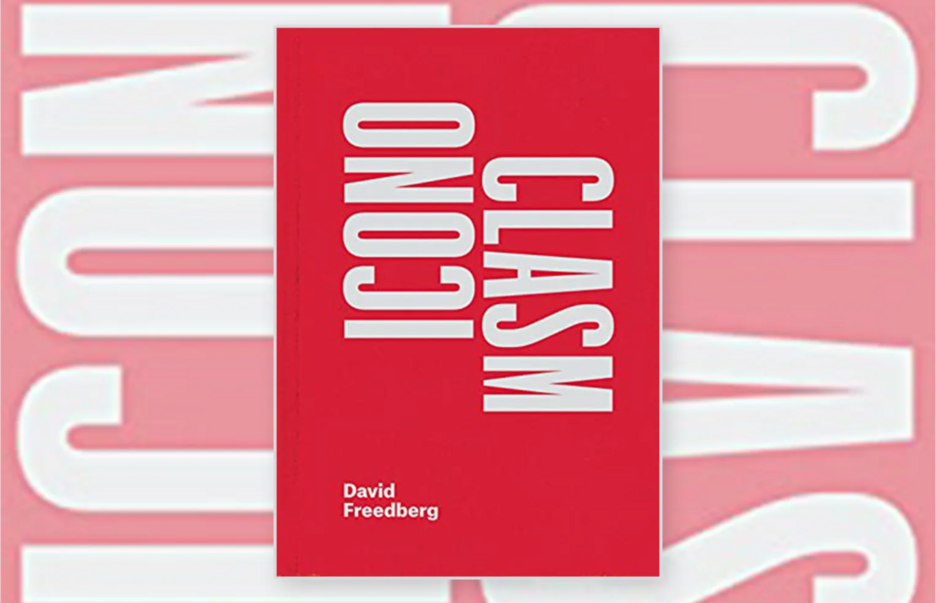From the series: NEW BOOKS IN THE ARTS AND SCIENCES —SOF/Heyman
With new surges of activity from religious, political, and military extremists, the destruction of images has become increasingly relevant on a global scale. A founder of the study of early modern and contemporary iconoclasm, David Freedberg has addressed this topic for five decades. His work has brought this subject to a central place in art history, critical to the understanding not only of art but of all images in society. This volume collects the most significant of Freedberg’s texts on iconoclasm and censorship, bringing five key works back into print alongside new assessments of contemporary iconoclasm in places ranging from the Near and Middle East to the United States, as well as a fresh survey of the entire subject. The writings in this compact volume explore the dynamics and history of iconoclasm, from the furious battles over images in the Reformation to government repression in modern South Africa, the American culture wars of the early 1990s, and today’s cancel culture.
Freedberg combines fresh thinking with deep expertise to address the renewed significance of iconoclasm, its ideologies, and its impact. This volume also provides a supplement to Freedberg’s essay on idolatry and iconoclasm from his pathbreaking book, The Power of Images. Freedberg’s writings are of foundational importance to this discussion, and this volume will be a welcome resource for historians, museum professionals, international law specialists, preservationists, and students.
Attendance and Registration Policy:
• This event will take place virtually over Zoom. Registration is required.
• Please email [email protected] to request disability accommodations. Advance notice is necessary to arrange for some accessibility needs.
• This event will be recorded. By being electronically present, you consent to the SOF/Heyman using such video for promotional purposes.
About the Author:
David Freedberg is Pierre Matisse Professor of the History of Art and Director of The Italian Academy for Advanced Studies in America at Columbia University. Freedberg is best known for his work on psychological responses to art, and particularly for his studies on iconoclasm and censorship (see, inter alia, Iconoclasts and their Motives, 1984, and The Power of Images: Studies in the History and Theory of Response, 1989). Although Freedberg continues to teach in the fields of Dutch, Flemish, French, and Italian seventeenth century art, as well as in historiographical and theoretical areas, his primary research now concentrates on the relations between art, history, and cognitive neuroscience.
About the Speakers:
Zainab Bahrani is Edith Porada Professor of Ancient Near Eastern Art and Archaeology at Columbia University. Professor Bahrani is the author and editor of twelve books, including Women of Babylon (London: Routledge, 2001) The Graven Image: Representation in Babylonia and Assyria (Philadelphia: University of Pennsylvania Press, 2003), Rituals of War: the body and violence in Mesopotamia (New York: Zone Books, 2008) which was awarded the James Henry Breasted Book Prize by the American Historical Association for the best book in any field of history prior to 1000 CE.
Finbarr Barry Flood is director of Silsila: Center for Material Histories and William R. Kenan, Jr., Professor of the Humanities at the Institute of Fine Arts and Department of Art History, New York University. Recent publications include Objects of Translation: Material Culture and Medieval “Hindu-Muslim” Encounter (Princeton UP, 2009) and Technologies de dévotion dans les arts de l’Islam: pèlerins, reliques, copies (Musée du Louvre/Hazan, 2019). He has just co-written with Beate Fricke, University of Bern, a book entitled Archives of Flotsam – Objects and Early Globalism, to be published by Princeton University Press.
Barry Bergdoll is Meyer Schapiro Professor of Art History and Archaeology Department Chair at Columbia University. Professor Bergdoll's broad interests center on modern architectural history, with a particular emphasis on France and Germany since 1750. Trained in art history rather than architecture, he has an approach most closely allied with cultural history and the history and sociology of professions.
Andrea Pinotti is Full Professor of Aesthetics at the Department of Philosophy of the University of Milan. He holds a Ph.D in Philosophy from the University of Milan. His main research interests include aesthetics, art theory, art history, the morphological tradition, image theories and visual culture studies, memory studies (monuments and memorials), and empathy theories.
Use code PRICONCU20 for 20% off book purchase at University of Chicago Press.
Organized by:
The Society of Fellows and Heyman Center for the Humanities
Co-sponsors:
Office of the Divisional Deans in the Faculty of Arts and Sciences
The Department of Art History and Archeology
The Italian Academy
